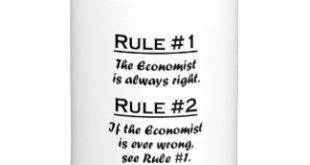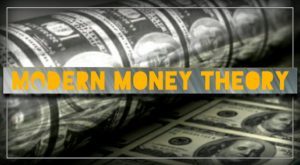from Lars Syll So what do I mean by methodological arrogance? I mean an attitude that invokes micro-foundations as a methodological principle — philosophical reductionism in Popper’s terminology — while dismissing non-microfounded macromodels as unscientific. To be sure, the progress of science may enable us to reformulate (and perhaps improve) explanations of certain higher-level phenomena by expressing those relationships in terms of lower-level concepts. That is what Popper calls...
Read More »Atmospheric CO2 concentration year 1 to 2018
The richest 1% alone emit more carbon than the poorest half of the planet.
. . . everything indicates more and more clearly that the resolution of the climate challenge can not be achieved without a powerful movement of compression of social inequalities, at all levels. With the current scale of inequalities, the march towards energetic sobriety will remain wishful thinking. Firstly because carbon emissions are highly concentrated among the richest. Globally, the richest 10% are responsible for almost half of the emissions, and the richest 1% alone emit more...
Read More »new issue of Economic Thought
Economic Thought:History, Philosophy and Methodology Vol. 8, No. 1 download issue in full Judging Heterodox Economics: A Response to Hodgson’s CriticismsLynne Chester The Meaning and Future of Heterodox Economics: A Response to Lynne ChesterGeoffrey M. Hodgson Was Smith A Moral Subjectivist?Kevin Quinn Addressing the Malaise in Neoclassical Economics: A Call for Partial ModelsRon Wallace Commentary on ‘Addressing the Malaise in Neoclassical Economics: A Call for Partial Models’David...
Read More »Cherry-picking economic models
from Lars Syll How would you react if a renowned physicist, say, Richard Feynman, was telling you that sometimes force is proportional to acceleration and at other times it is proportional to acceleration squared? I guess you would be unimpressed. But actually, what most mainstream economists do amounts to the same strange thing when it comes to theory development and model modification. In mainstream economic theory, preferences are standardly expressed in the form of a utility...
Read More »Two ways to approach sustainability
from Ken Zimmerman Ecosocialists aren’t even a political party, much less a political force in most of the western world. And certainly not in the top polluting nations in the world – China, Russia, India, and the USA. These four nations along with the EU hold the future of humans safely living on planet earth, of perhaps not living at all on that planet. There are two ways to approach changing this situation – from people’s direct-action groups to local and then national governments....
Read More »Ayn Rand — a perverted psychopath
from Lars Syll [embedded content] Now, I don’t care to discuss the alleged complaints American Indians have against this country. I believe, with good reason, the most unsympathetic Hollywood portrayal of Indians and what they did to the white man. They had no right to a country merely because they were born here and then acted like savages. The white man did not conquer this country … Since the Indians did not have the concept of property or property rights—they didn’t have a settled...
Read More »Donald Trump’s capricious tariffs open the door to corruption
from Dean Baker Donald Trump has repeatedly proclaimed his love for tariffs, even dubbing himself “Tariff Man.” While Trump clearly does not understand how tariffs work, some of the discussion in the media has been off target as well. It’s worth trying to get the basic story straight. First, it has been widely pointed out that Trump is wrong in thinking that China or other targeted countries are paying tariffs to the U.S. Treasury. To make it simple, a tariff is a tax on imports. It can...
Read More »What happened to the public economy in economics?
from June Sekera More than a century ago, the effective operation of the public economy was a significant, active concern of economists. With the insurgence of market-centrism and rational choice economics, however, government was devalued, its role circumscribed and seen from a perspective of “market failure.” As Backhouse (2005) has shown, the transformation in economic thinking in the latter half of the 20th century led to a “radical shift” in worldview regarding the role of the state....
Read More »Martin Wolf says MMT is right, but …
from Lars Syll Now we come to the core of Wolf’s objection. It is, as he admits, political. And it is that politicians might use their judgements. Heaven forbid! Wolf is very clearly of the school that created economics to impose constraint on that judgement so that full employment, rising real wages and a redistribution from capital to labour may not happen. And now he is petrified that the so-called economics that underpinned that heinous political system is shown to be wrong the...
Read More » Real-World Economics Review
Real-World Economics Review





